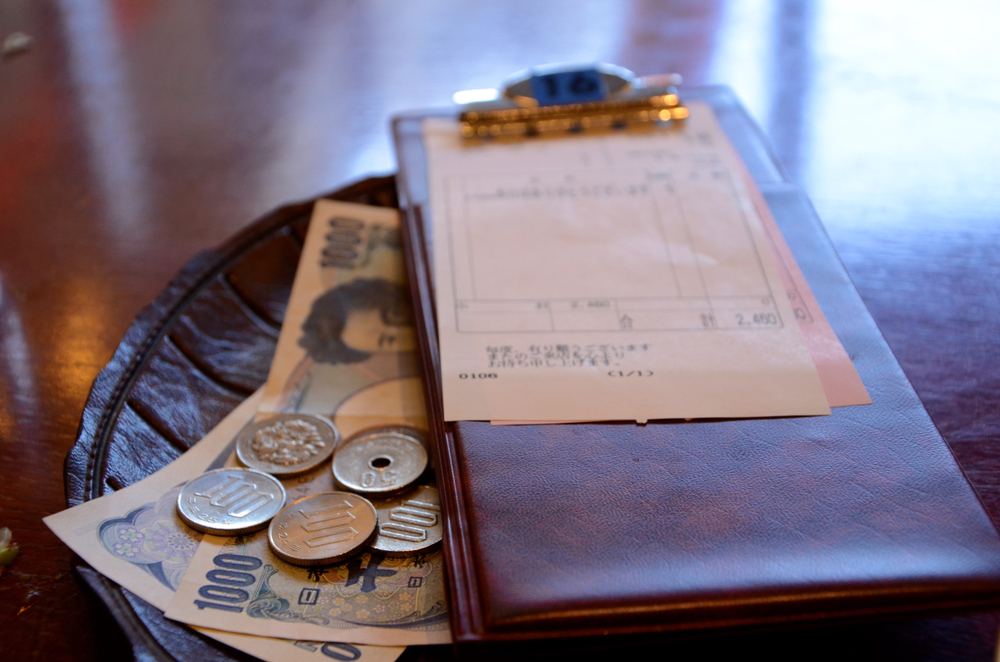These embarrassing American missteps are making locals roll their eyes.

You think you’re being polite, but the locals are quietly cringing. It’s easy to forget that what feels perfectly normal back home can be downright offensive in another country. You’re just trying to be friendly, respectful, or even helpful, but without realizing it, you’re breaking unspoken rules you didn’t even know existed. The truth is, Americans have a habit of making cultural missteps when traveling abroad. It’s not always their fault—after all, no one hands you a rulebook the minute you step off the plane.
But the last thing you want is to leave a bad impression when you’re trying to make a good one. If you want your travels to be memorable for the right reasons, it helps to know where you might be going wrong. A little cultural awareness can make all the difference between being a welcome guest or an unwelcome nuisance.
1. Japan Will Think You’re Rude if You Snap Photos Without Permission.

In Japan, not everything you see is fair game for your camera. Tourists often make the mistake of pulling out their phones to capture temples, shrines, and other sacred sites without realizing they’re being disrespectful. These places hold deep religious and cultural significance, and snapping photos without permission is a surefire way to earn disapproval. Even if there are no signs explicitly banning photography, it’s wise to be cautious and ask permission if you’re unsure, suggests Shawn Weldon at Japan and More.
It’s not just religious sites—taking photos of locals without consent can be seen as invasive and rude. Respecting these unspoken boundaries goes a long way in showing that you’re not just another careless tourist. It’s far better to absorb the experience with your own eyes than through a lens.
2. Arriving Late in Germany Will Earn You an Instant Bad Reputation.

In Germany, timekeeping is no joke. Being punctual is more than a social nicety—it’s considered essential to showing respect. Showing up even five minutes late to a business meeting, dinner reservation, or casual meetup can make locals view you as thoughtless and unreliable, says Monica Bozinosk in an article for Habyt. Germans value efficiency and reliability, and tardiness suggests you don’t care about their time. While they won’t necessarily confront you about your lateness, you can bet they’ll remember it.
Whether you’re visiting a local’s home or meeting a tour guide, it’s wise to plan your route, anticipate delays, and arrive early when possible. If you absolutely can’t avoid being late, send a message to apologize and give them a heads-up. Your effort to be respectful won’t go unnoticed.
3. If You Give Tips in Japan, People Feel Awkward.

Tipping may be second nature to Americans, but in Japan, it’s often viewed as an awkward, even insulting gesture. Japanese culture emphasizes dignity, professionalism, and pride in providing high-quality service. When you try to leave a tip, it can be interpreted as implying that the service was substandard or that you feel pity rather than appreciation. It’s not that the Japanese aren’t grateful for your gesture; they simply believe that good service should be a given, not something that requires extra compensation, according to Andres Zuleta, founder of Boutique Japan.
Leaving money behind can leave the staff feeling confused or uncomfortable, and they may even chase you down to return it. Instead of tipping, a warm, sincere “thank you” or a compliment about the service will be far better received.
4. Touching Someone’s Head in Thailand Will Make You Seem Disrespectful.

Thailand’s friendly, welcoming nature can make travelers feel instantly at ease, but certain gestures are big no-nos. One of the worst is touching someone’s head, even as a playful gesture. In Thai culture, the head is considered the most sacred part of the body. Putting your hand on someone’s head is seen as a deeply disrespectful act, reminds Gil Van Dyke writing for Medium.
It doesn’t matter if you’re petting a child’s hair or patting an adult’s head in an affectionate way—locals will not appreciate it. If you’re lucky, they might let it slide to avoid confrontation, but you’ll still leave a terrible impression. Always be mindful of how your actions might be interpreted. Respecting local customs is the key to making genuine connections and avoiding embarrassing cultural blunders.
5. Loud Talking in Italy Makes You Look Like a Rude Tourist.

Italy may be known for its passionate people, but loud, overbearing conversation is something locals generally frown upon. Americans especially are often guilty of this faux pas, unintentionally coming off as brash and inconsiderate. Italians appreciate lively conversation, but not when it’s delivered at top volume.
Restaurants, shops, and even public squares are places where people enjoy socializing calmly and respectfully. Shouting or speaking excessively loudly can make you seem rude and obnoxious. Instead, lower your voice and try to match the general volume of the locals around you. You’ll blend in much better, and people will appreciate your effort to respect the local social vibe. Being mindful of your tone and volume will make your experience far more enjoyable and authentic.
6. Never Give a Thumbs-Up in the Middle East, As It Can Be a Major Insult.

It’s just a friendly gesture in the U.S., but in many parts of the Middle East, a thumbs-up is an offensive and vulgar insult. This simple hand signal, which Americans use to express approval or encouragement, is interpreted very differently in some countries. It’s akin to giving someone the middle finger in Western culture. Unfortunately, most tourists are unaware of this cultural difference and end up accidentally offending locals. To avoid this embarrassing mistake, it’s best to avoid using thumbs-up gestures altogether.
Instead, try offering a polite nod, a smile, or verbal praise to express your approval. Understanding these cultural nuances shows that you’re not just passing through—you’re genuinely trying to connect and communicate respectfully with those around you.
7. Pointing Your Feet at People in Thailand Can Be Deeply Offensive.

Feet are considered the lowest, dirtiest part of the body in Thailand, and pointing them at someone—even accidentally—is viewed as a major insult. Whether you’re sitting in a temple, crossing your legs in a café, or casually stretching your legs on public transport, pointing your feet in someone’s direction can seriously offend them. Thais place great emphasis on showing respect, particularly in temples and religious sites.
Taking off your shoes before entering someone’s home or a sacred place is expected and appreciated. Keeping your feet pointed down and away from people shows you understand their customs and are making an effort to be polite. A little attention to where your feet are pointing can make all the difference in how you’re perceived.
8. Dressing Too Casually in France Can Get You Judged.

France’s reputation for high fashion isn’t just a stereotype—it’s a cultural standard. Showing up at a restaurant, museum, or historical site in shorts, flip-flops, or other overly casual attire can make you stand out for all the wrong reasons. The French place a lot of importance on how you present yourself, and dressing sloppily can come off as disrespectful or inconsiderate. While you don’t need to wear designer clothes, appearing well-groomed and appropriately dressed for the setting shows you respect the local culture.
When in doubt, opt for smart-casual over beach-ready. Locals will appreciate the effort, and you’ll avoid the subtle disapproval that comes with looking like you didn’t care enough to make an effort.
9. Don’t Forget to Greet People in Spain If You Don’t Want to Appear Rude.

In Spain, greetings are taken seriously. Walking into a shop, restaurant, or even a social gathering without acknowledging the people present is considered incredibly rude. A simple “Hola” or “Buenos días” goes a long way in making a good first impression. Spaniards value social interaction and warmth, even in casual encounters. Ignoring this cultural norm can make you seem arrogant or disrespectful, even if you didn’t mean any harm.
It’s not just about saying hello—making eye contact and offering a friendly smile are part of the expected social ritual. Next time you step into a small business or greet someone new, remember that a little politeness will earn you a lot of goodwill.
10. Touching or Patting Someone’s Shoulder in China Can Be Awkward.

Personal space and physical contact are viewed differently around the world, and China is no exception. Westerners often make the mistake of patting someone’s shoulder, giving a friendly hug, or touching an arm during conversation. While these gestures are considered normal and friendly in the U.S., they can come off as overly familiar and intrusive in China.
Physical touch is generally reserved for close friends and family, so casual touching from strangers can feel uncomfortable or disrespectful. Instead, opt for a friendly nod or smile, which will be much more warmly received. Being mindful of personal boundaries shows respect and consideration, making your interactions far more pleasant and genuine.
11. Complimenting Someone’s Home in India Can Be Misinterpreted.

You might think complimenting someone’s beautiful home is a polite gesture, but in India, it can create an uncomfortable situation. Compliments about someone’s possessions can come off as envious or as if you’re coveting their belongings. This perception is rooted in deep cultural values surrounding modesty and humility. If you genuinely want to show appreciation, focus on expressing gratitude for their hospitality or praising the warmth of their welcome rather than their material possessions.
Phrases like, “Thank you for making me feel so welcomed” are much more appropriate than comments about their home’s beauty or luxury. Being aware of these nuances shows you’re making an effort to be considerate of their customs and beliefs.
